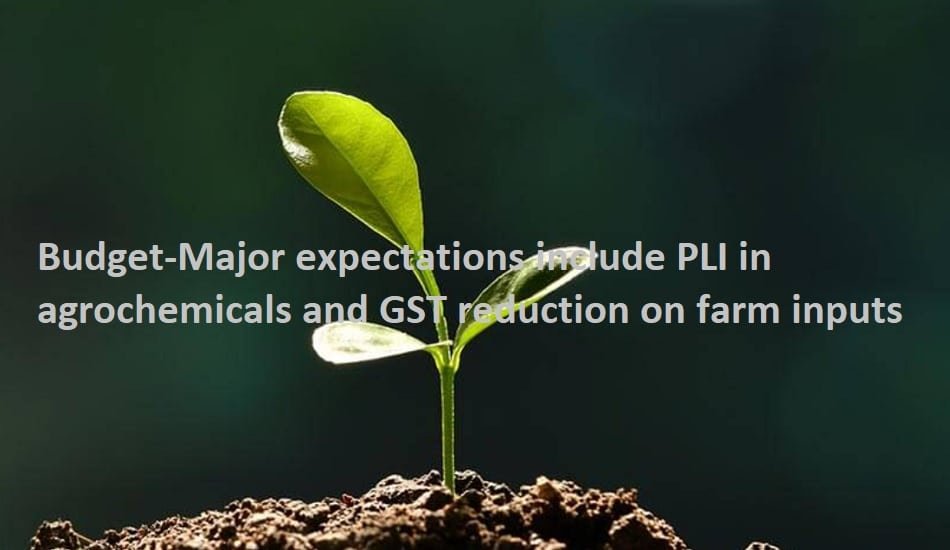Budget-Major expectations include PLI in agrochemicals and GST reductions on farm inputs
Stakeholders in the farm sector, who are equally important in ensuring an excellent harvest and higher prices, are wondering if the Finance Minister will announce anything new or change some taxes/rates to boost growth. Businessline gathered some expectations from key players in the agricultural sector.
Anuj Kumbhat, founder and CEO of WRMS, a climate management company, stated, “We hope for strong government support to improve climate resilience, climate change adaptation, and disaster preparedness initiatives across various sectors.” Increased investment, combined with strong policy support, regulations, and incentives in advanced technologies like IoT, AI, and data analytics, has the potential to transform climate risk assessment and mitigation strategies in agriculture, infrastructure, urban planning, disaster management, and insurance.”
Also Read | Agrochemicals company Safex to invest ₹100 Cr in its AgCare Technologies
Creduce’s founder, Shailendra Singh Rao, stated, “We seek substantial funding for clean energy projects, including solar and wind. This should include investments in grid infrastructure, tax breaks, and subsidies. This will provide significant relief, particularly to the transition sector. To achieve our immediate 2030 goal, we must focus on it.” Rao expects Sitharaman to announce budgetary support for battery storage solutions and believes the sector will be permanently crippled unless a significant budget is allocated.
He also stated that funding for new tree planting and degraded forest restoration is urgently needed, as well as financial assistance to farmers and communities that practice sustainable forestry. Creduce’s founder, Shailendra Singh Rao, stated, “We seek substantial funding for clean energy projects, including solar and wind. This should include investments in grid infrastructure, tax breaks, and subsidies. This will provide significant relief, particularly to the transition sector. To achieve our immediate 2030 goal, we must focus on it.” Rao expects Sitharaman to announce budgetary support for battery storage solutions and believes the sector will be permanently crippled unless a significant budget is allocated.
He also stated that funding for new tree planting and degraded forest restoration is urgently needed, as well as financial assistance to farmers and communities that practice sustainable forestry methods. “Strategies to mitigate the effects of climate change, including droughts, floods, and heat waves, may be included in the budget,” he stated.
Simon Wiebusch, president of Bayer (South Asia), stated, “The government will use this year’s budget to further its commitment to farmer welfare through measures to improve market linkages, increase access to quality inputs, promote digital technologies, and accelerate the formation of more farmer collectives (FPOs). Furthermore, incentivizing investment in the sector’s research, particularly in regenerative agriculture and climate-smart practices, can catalyse long-term growth and ensure consistent increases in farmer incomes.
“India has the potential to arise as a global player in the horticulture sector and hence fiscal policies aimed at creating the right infrastructure and ecosystem for horticulture will not only drive rural livelihoods but also bring in foreign exchange through exports.”According to Raju Kapoor, director of FMC India, “With the monsoon playing truant, agricultural growth has dipped from 4.7% to 1.4%, adding to rural distress.” The Budget provides an important opportunity to address these concerns and propel the sector into a brighter future. The government must prioritise agriculture and rural India, focusing on strengthening farmers while also reducing food inflation, which disproportionately affects society’s underprivileged segments.”
R G Agarwal, chairman of the Dhanuka Group, stated, “For a stronger agricultural sector and national food security, a PLI scheme for crop protection should be announced, and GST on pesticides should be reduced.” This will empower farmers and make these essential tools more affordable.
Also Read | Govt should drop GST from 18% to 6%, implement PLI on agrochemicals: Agrolife
SK Chaudhary, the CEO of Safex Chemicals stated, “Given the increasing threat to crops because of adverse weather conditions arising from climate change, one looks forward to a robust rise in the R&D outlays so that both private and government institutes are motivated to develop climate-resistant crop varieties.”
Best Agrolife’s MD, Vimal Kumar, stated, “Our heavy reliance on agrochemical imports from China highlights the need for implementing PLI benefits to boost local production.”
Sanjiv Kanwar, MD of Yara India, stated, “We expect initiatives to improve credit and insurance frameworks for farmers, as well as the establishment of an agriculture accelerator fund, to spur growth. Tax parity for fertilizers and micronutrients, combined with direct benefit transfers, will enable farmers to increase the quantity and quality of their crops while reducing environmental impact.”Sanjay Borkar, CEO and co-founder of FarmERP, stated, “The agritech industry has high expectations for significant advancements in new-age technologies and the integration of sustainability into agriculture. Tax breaks and subsidies for agri tech start-ups will spur innovation and attract young entrepreneurs to the industry.
Also Read | Dhanuka inked MoU with ICAR to use KVK’s land for technology innovation on seeds, nutrients, agrochemicals
Saroj Kumar Mahapatra, executive director of PRADAN (an NGO), stated, “Improving irrigation infrastructure, particularly in underserved areas such as south Odisha and Chhattisgarh, is critical.The budget should provide timely and affordable credit, enforce minimum support prices, and strengthen agricultural insurance. We urge the government to increase the number of female FPOs in order to create more lakhpati didis over the next 2-3 years.
Sat Kumar Tomer, founder and CEO of Satyukt Analytics, stated, “We advocate for real-time integration in agricultural delivery, farm-scale credit assessments, and crop insurance. Promoting precision agriculture, particularly in water optimisation and crop advisories, and incentivizing agri-tech start-ups to collaborate with institutions such as KVKs, will drive long-term growth.
According to Swarup Bose, founder and CEO of Celcius Logistics, “budget can provide support to boost rural infrastructure, increase public and private investment, and promote technological innovation in cold supply chain solutions.”


















Add Comment